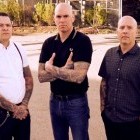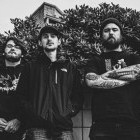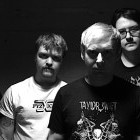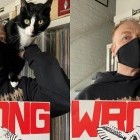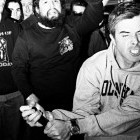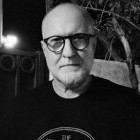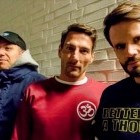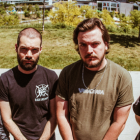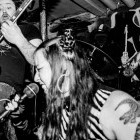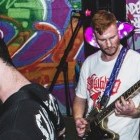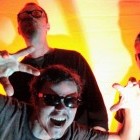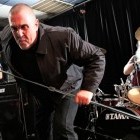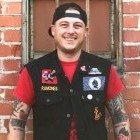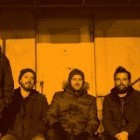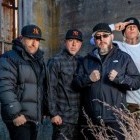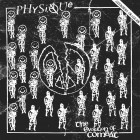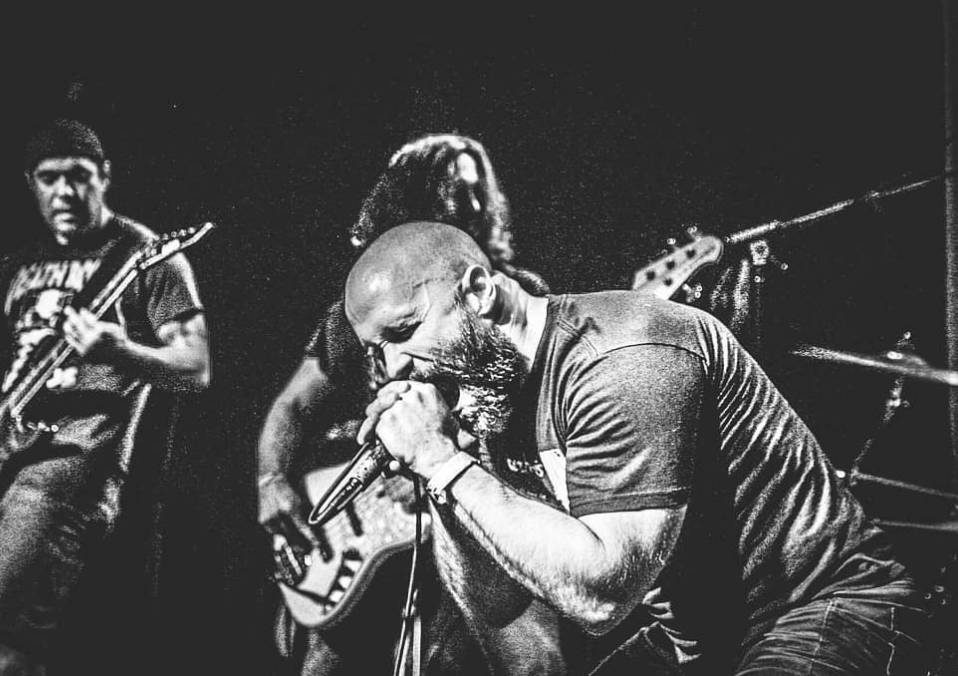
One of the coolest things about hardcore to me is how you can meet someone at any given time, whether it's at a show, on a message board, or social media, etc. You gain a bond that many folks in the more “normal” world just don’t have; or maybe they do...but from my own experience, it’s not the case. You can go years without seeing them and the moment you do you start off right where you left off.
I met Daniel Austin; vocalist of Die Young, Band of Mercy, and Tooth and Claw many years ago when I lived in Anchorage, AK, and since then, I’ve seen him off and on while playing shows together, attending shows, or randomly running into him at a show he wasn’t playing.
Outside of playing music, Daniel is also an activist, a powerlifter, an author, and a lifer of all things counter culture. I know he’s always up to something so I wanted to chat with him about how we met, what he's been up to, and then some.
It’s pretty wild that I've known you for so long from the Die Young days. Back when I lived in Anchorage, y’all were the first non-local show/band that I helped book. I know Die Young was notorious for touring literally everywhere all the time at one point, 2 things:
What drove you to want to tour places that might not have the best show or the biggest attendance/$ draw?
It was all driven by a simple desire to see the world. We saw hardcore could provide us with opportunities to see parts of the world we didn’t know how we’d be able to see otherwise. We also didn’t care how “cool” a city or scene was perceived to be. If kids wanted to have a show and connect through music, we were down to go and make those connections.
A lot of our best experiences were in out-of-the-way type places. We were down to play for nearly anybody and with nearly any band out there, no matter the genre. By late 2009, when Die Young hung it up for 4 years the band had played over 700 shows across 35 countries, and in a good handful of those places we had been among the first DIY bands to go play them.
A lot of those experiences were really special because the kids showing up were authentically excited–not tainted by what bands they were supposed to like, or what shoes or shirts they were supposed to wear. On one hand, we made absolutely abysmal “business” choices as a band, and for many years and it did precipitate a 4-year hiatus.
On the other hand, we got to play some places and have experiences that even the biggest, most successful bands out there won’t get the chance to partake in. I’m proud of all the idealistic, wacky, impractical things Die Young did in that capacity.
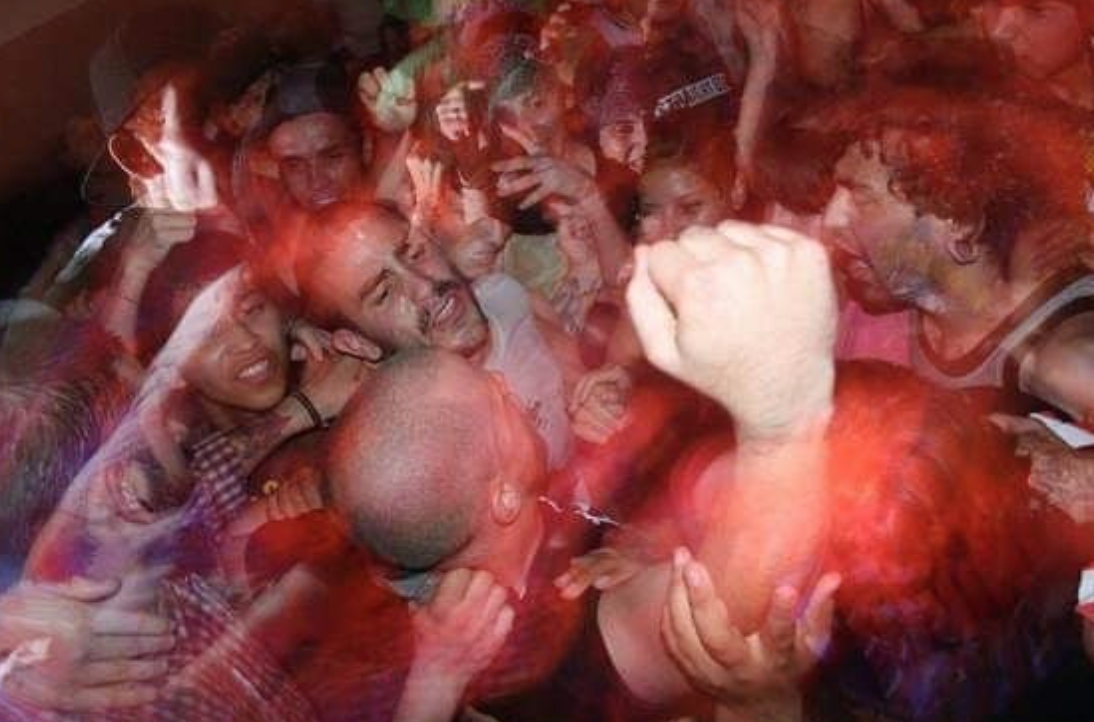
What do you remember from the little run y’all did in Alaska?
I remember the show in Anchorage being nuts. I remember kids singing along, which shocked us. I believe you and your friends had passed out burned CDs of a handful of our songs to promote the show. This was May 2006, so streaming was not really a thing yet, and wow, it seemed kids really took those songs on the burned CD to heart. We then rented a car, drove up through Denali National Park on the way to Fairbanks. I remember we got out on the highway to play in the snow, try (foolishly) to talk to moose (before frantically running back to the rental car), and to take pictures of the thawing rivers–a lot.
That night we played a busted ass 21+ bar show in Fairbanks with an Avenged Sevenfold cover band because the Fairbanks promoter said we needed to play a bar to make all the money we needed, that an all ages DIY show just wouldn’t cover it. We drove everyone out of the bar that night with our set except these cougars who kept screaming for us to take our shirts off, and they even invited us back to their place afterward. It was really weird. Then we went outside after our set and saw the aurora borealis for the first time in any of our lives.
The next day, when we were supposed to play our all ages/DIY show in Fairbanks, the cops shut it down before it even got started. Go figure. I recall the venue in Wasilla turned out to be a christian venue who refused to pay us if we “cursed” or “promoted homosexuality” on stage, so I got real clever with the stage banter that night. I remember we got those kids stage diving and moshing, and I am certain it was a first for most of them. The venue was not stoked at all, but they still paid us. Honestly, I thought that show was a real victory in terms of exposing kids in an isolated community like that to Hardcore. That Alaska trip was wild, man.
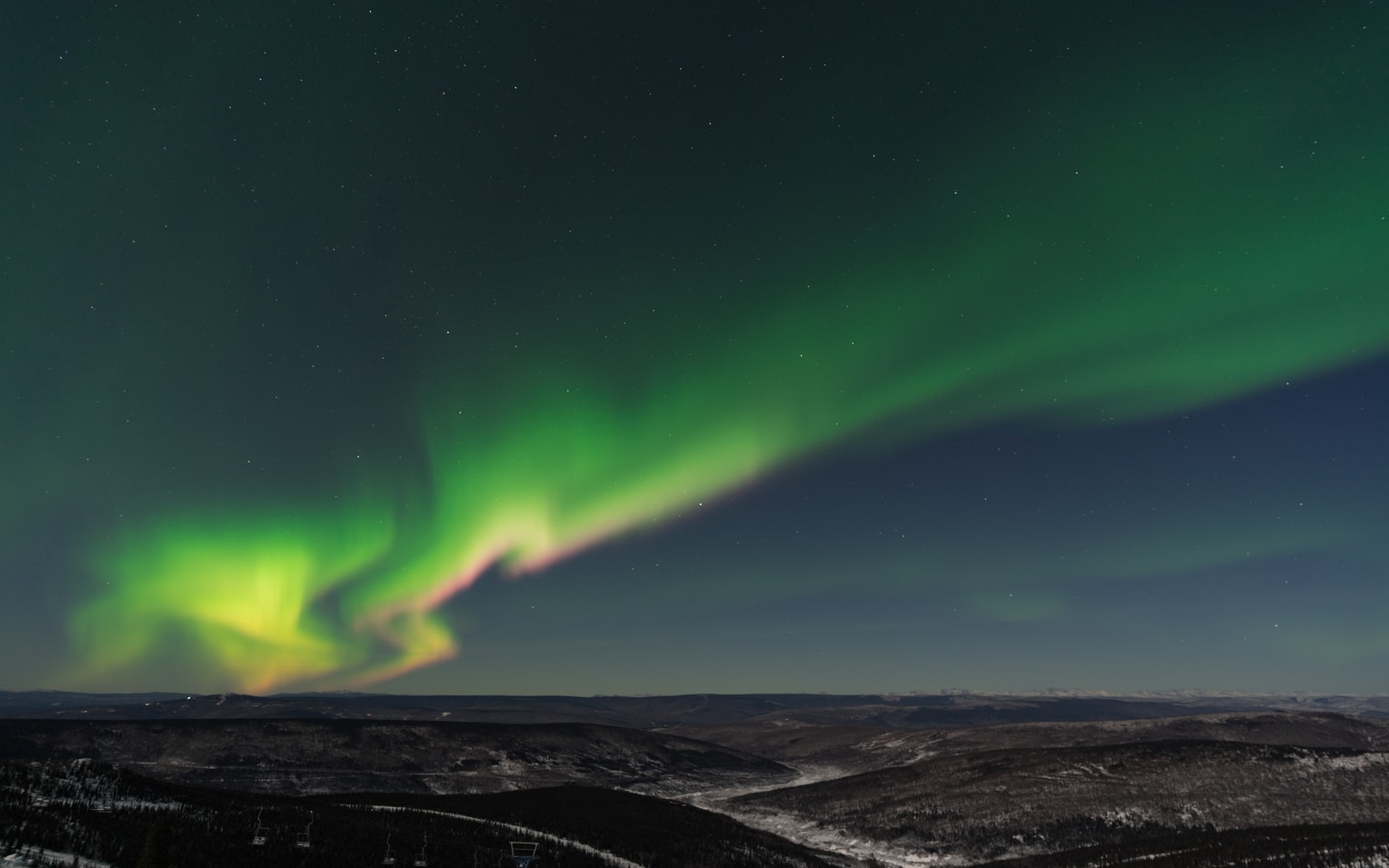
At the time of discovering Die Young and meeting you/seeing y’all play, one thing that really caught my attention was the attention to lyrics and political/social issues. At the time; I was 18, these were things that just didn’t seem that important in my personal life and a lot of the hardcore I was listening to wasn’t quite as in your face about it or as focused on issues.
Do you feel lyricism and social/political issues are an important part of punk/hc? I know for me often it feels like that’s what differentiates it from other types of aggressive music.
Inarguably, yes, social and political issues do belong in hardcore and punk. They don’t have to be the centerpiece of a song, album, or show, but if someone’s got some authentic feelings or thoughts about an issue, I think hardcore, more than any other forum, ought to be a space to let those thoughts fly, create a dialogue, and hopefully learn some things.
Back to what you were saying about how at 18 a lot of things outside your comfortable suburban bubble and social scope didn’t seem relevant to you, or perhaps you were oblivious to issues in the world at large. I was the same way for a lot of my suburban childhood.
But then came Bad Religion when I was 13 or 14. Then when I was 15, it was Earth Crisis and Propagandhi. At 16, Trial. At 18, Catharsis. Those bands and others blew my mind wide open to new ideas, both political and philosophical, and it really changed my consciousness.
I am thankful for it. So to me, after having been given a gift of learning new ways to think and see the world, I’ve always felt it was important to try to carry that torch in a band. Not in a self-important, righteous way, but in a way that exists to benefit all of us who participate in this thing called hardcore.
Who/what did you draw inspiration from when writing lyrics in Die Young? I know Die Young has been a band for a long time, have you found the idea of trying to write new or interesting lyrics challenging over the years?
My influences are always changing. Early on, I was mostly influenced by my favorite bands, most of whom I listed above. As I get older, I think my influences become more literary and dare I say, “folk.” With the recent Tooth and Claw record I was drawing from absolutely zero of the influences early Die Young drew from.
With Tooth and Claw, I am pulling from the poetry of Yeats and the philosophy of Schopenhauer or Camus (or others of that pessimistic ilk), and even some Jungian or Freudian psychological takes, among other influences. I’m not sure that was obvious to anyone, and I tried to craft it in a way that was not obvious, but these are the kinds of writers and thinkers that having discussions in the hardcore scene for decades now have led me to explore in greater detail on my own.
I don’t think writing new lyrics is exceptionally challenging as long as I am continuing to challenge myself to learn new things and read new authors in my own time. First you’ve got to fill yourself with new content, new questions to explore. Then the rest should come a little more naturally. Also, tapping into the great minds of history really helps me appear smarter to the outside world than I really am.
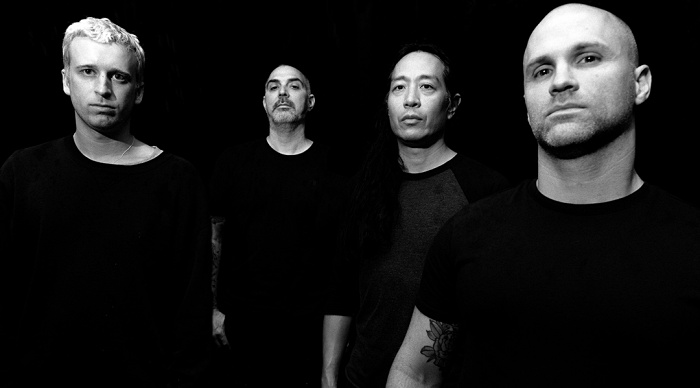
I also remember when we met, you had a very calm and relaxed demeanor for being such an aggressive front person with frankly very angry lyrics. Between the lyrics and the live performance, is this form of “art” a form of escapism for you?
I always tell the guys in Die Young that we should “bring the rage to the stage” and not direct it at each other off stage. Sometimes we wanted to truly kill each other after a long van ride or weeks of being on tour. Nothing helped smooth the waters like a good, rowdy show.
So yeah, to me, the stage or the studio is a place for cathartic expression, to exorcise the dark things brooding in us in our horribly repressed civil lives. To me it’s necessary to make a space for those energies. It’s part of why kids with very privileged, suburban lives still need something like Hardcore. And let’s be real, life is psychologically and existentially hard no matter who you are or where you came from.
I’m not making any claims about who has it the hardest (certainly not me), but I think it’s fair to say that being a conscious human being ain’t no easy business. So a good show full of shit talking, screaming, and aggressive bodily contact helps me even out in my daily life. It’s a place to let go, let things fly, and feel free. I think we all need it, or something like that in our lives at least semi-regularly. I suppose you could call it “art”, why not?
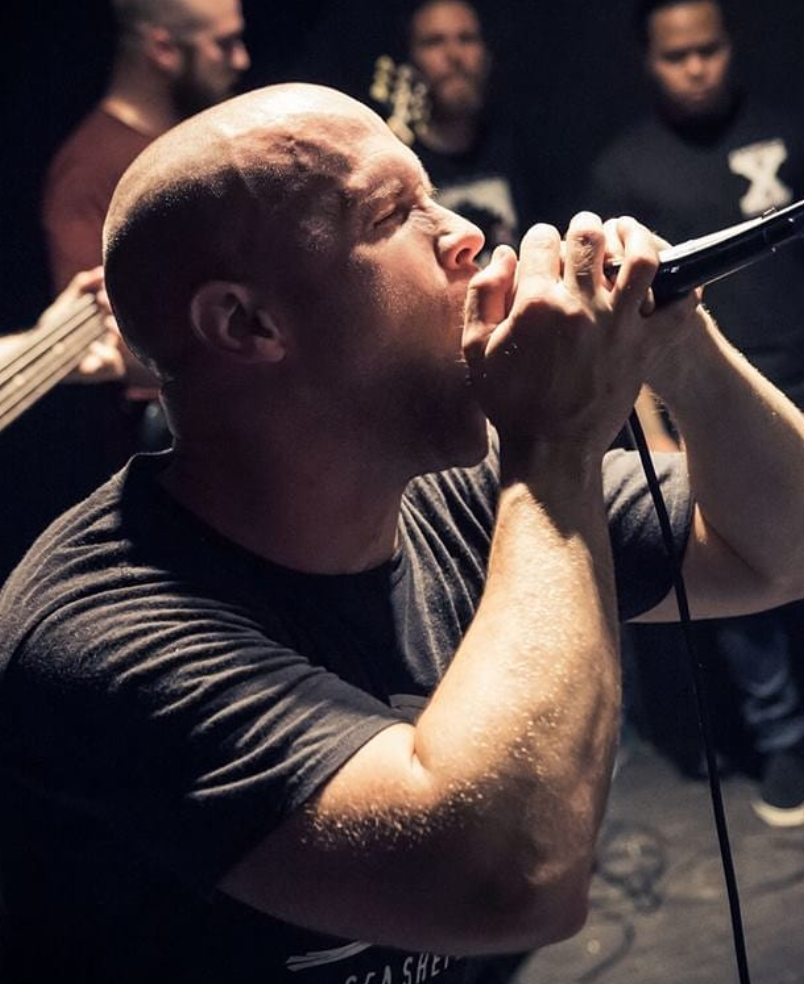
Not to blow smoke up your ass but you really do have a way with words in the lyrics department, so it‘s not a shocker that you took it beyond writing lyrics for songs, and ventured into the literature world if you will. What made you want to make the leap from lyric sheet to paperback?
Well, thank you. The older I get, the more I think storytelling and evoking emotion via the written word is going to be the hill I die on, so I am trying to be as good at it as I can be. Before I was ever writing lyrics as a singer for a band, I naturally wrote cathartic things as an adolescent kid. Sometimes the writings were attempts at being songs even though they did not have music written yet, or sometimes they were like what you might call poetry.
I’ve always just leaned toward literary interests and expression versus the world of numbers, especially as a lonely kid. I spent a lot of time playing guitar and writing in middle school and high school.
I was a latchkey kid since elementary school, coming home to an empty house when my mom was working and baby sister was in daycare. I had friends, sure, many of whom I started bands with in high school, but it was the times of solitude that I think really lent themselves to me trying to express myself, to find myself in some sense. Sitting still with nothing to do or nothing to express will drive a person crazy, so yeah, here I am writing books.
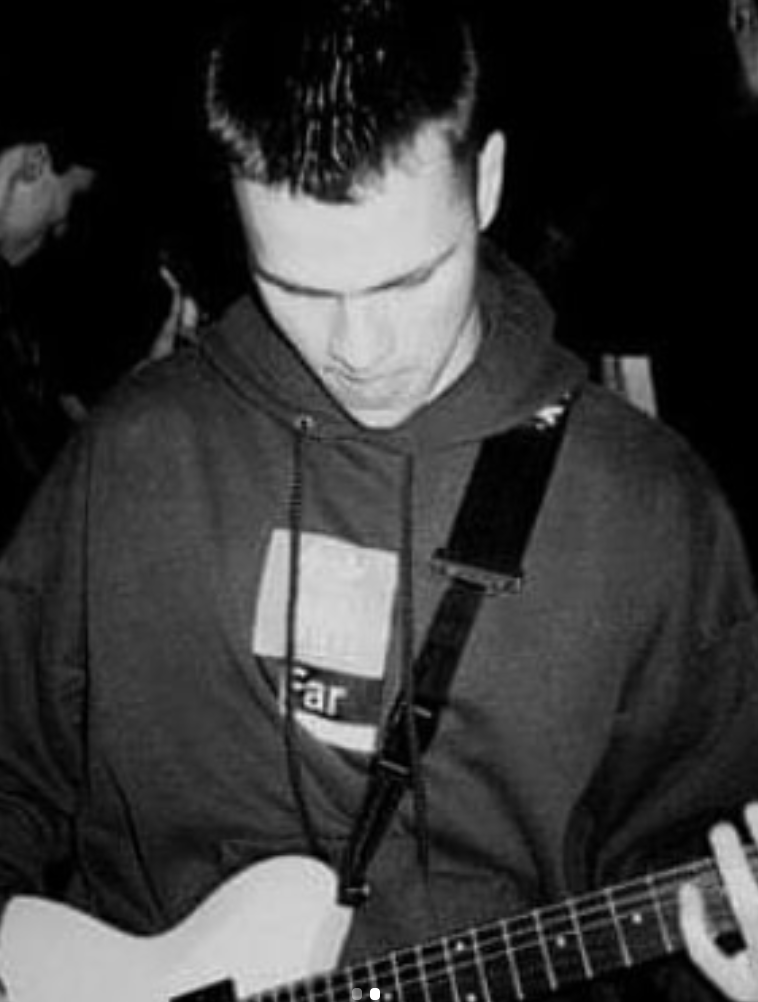
Looking through the books you’ve written (The Way of the Vegan Meathead, The Lonely God Inside You, Failed Misanthrope, Cane Field), I feel like I can tie it all back to either Die Young lyrics or even in between banter in a live setting so thematically, it’s not a shock that your books have gone in this direction. From a writing process perspective, piecing it all together, and the format, how was writing this way different from writing lyrics for a band?
The first book I ever started writing with intention was the novel, Cane Field. I started that one back in 2016. It came out in late 2019. There were countless drafts and revisions for years, as I was teaching myself how to write a fictional story (albeit confessional fiction). But of course, life threw me many curve balls in those years, and I would walk away from Cane Field for months at a time before coming back to it with clearer eyes and a knack for sharpening the story.
One positive curveball in that time was that because of my notoriety as a vegan competing in powerlifting, people started reaching out to me about weightlifting and diet advice a lot, so that’s when ideas for the Vegan Meathead persona/brand (and eventual book) were spawned. Often, when I’d step away from writing Cane Field, I would delve into the Vegan Meathead persona and knock some chapters out of that book while I was in that mode of creativity.
If anyone has read both books, they are aware that the voice on the pages in each of those books is very different. One reveals a tender, vulnerable, and comically cynical look at a musician’s inner thoughts and feelings. The other voice is a pituitary macho vegan barking out dietary commandments at people wanting to be strong vegans–someone who has little sympathy for anyone not willing to follow the rules of strength.
Honestly, those dichotomies sum up my ridiculous personality as a whole pretty well, so it is fun to bounce back and forth between those kinds of creative voices. But yeah, the Vegan Meathead material is unlike anything else I write in terms of tone and content, but also in that it’s my only “successful” book–the only title with any real demand. People were asking me to write it before I ever set out to do it.
The other stuff, the more personal and vulnerable stuff, especially the poetry, is a hard sell that I willingly impose on the world, haha. But I think that material is my most authentic, and I find purpose and enjoyment in publishing it. Fortunately some people do genuinely like it.
The poetry is absolutely not for everyone though. I really put out my first two poetry books prior to the release of Cane Field just to show people there was another side of me that they should brace themselves for when the novel was to come out.
From what I can tell; correct me if I’m wrong, your books have been self published/released. I gotta believe your DIY ethics from hardcore and ability to network/navigate that world have helped aid the transition into publishing? How has that whole experience been?
Don’t get me wrong, I’ll take a publisher’s advance if anyone wants to sign me for some novels, or even future Vegan Meathead books haha. I am not above taking corporate money at all! Especially if I am grinding for a message I believe in. But all that’s a tougher game to play than ever. To get a literary agent, and then a major publisher who isn’t going to rip you off? Those are one in a million odds these days. If you look around, a lot of authors are getting major book deals based on their social media following alone. It’s not about literature or the love of the arts. It’s all numbers and business–two things which I have unwisely shunned most of my life!
I am trying to be more practical with age though. I think I continue to go the DIY route simply because I am impatient. That’s the main reason. Like I said, I’d be happy to take someone’s money and leave the business/promotion end of things to them, but it often involves compromises regarding brand development and all that.
In the meantime I consider myself fortunate that anyone takes interest in my books and buys them at all. I’ve really got no complaints. I’ll do it this way forever if that’s how it goes. I enjoy the process.
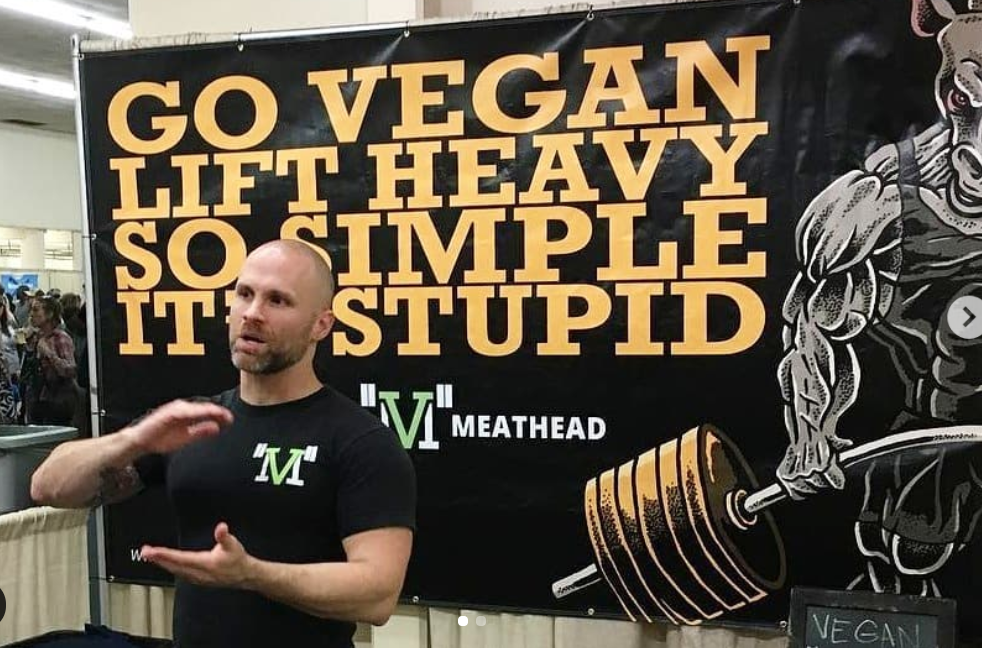
So you have a new book coming out called The Dogman of Belvedere on October 1st. What’s this book about? What inspired you to write it? How long has this been in the works? Give readers the 411 on this.
The Dogman of Belvedere is my third poetry collection, and it was inspired by a year of rough living in Memphis, TN, amid the aftermath of a relationship from hell. I recount tales of debauchery and depravity among my unruly neighbors, and I explore their lives and perspectives nearly as much as I explore my own.
With each poetry collection, I’ve made a conscious attempt to portray some light in the darkness of life’s failures–particularly in the humor department. My first collection, The Lonely God Inside You, was not funny at all. Not at all. It was mostly just a collection of raw pain, and while I think that can have value, it’s not a mental space I wanted to get stuck in. The second collection, Failed Misanthrope, has some zingers that I know people didn’t see coming, but it was still more raw pain than not.
By nature, though, being a book that attempts to portray the people and collective character of Memphis, you better believe that The Dogman of Belvedere is by default going to be the funniest of all my books. I really hope readers pick up on the comedic threads in there, no matter how dark and absurd they may be. If they don’t, I’m going right back to the writing board. At this point in my life, I think humor and orgasms are among the only things that save us enough to carry on another day or two.
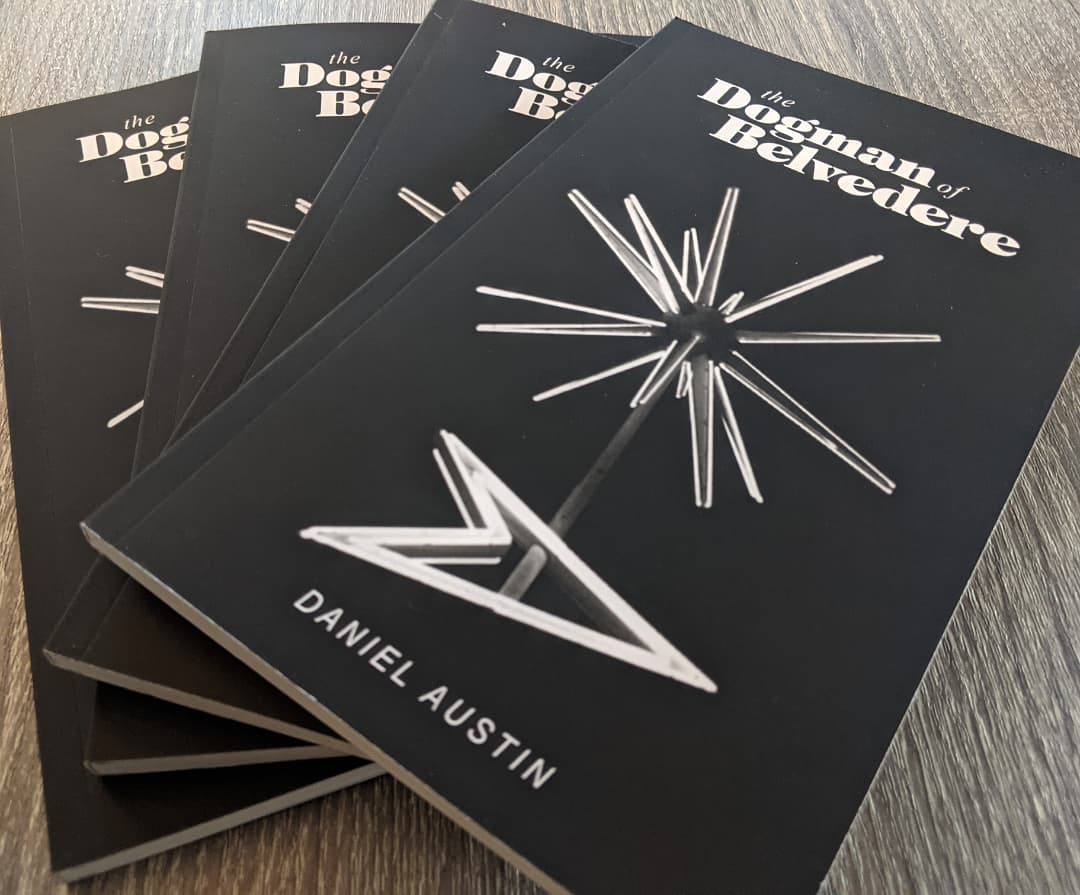
What is your goal; is there a goal, or what do you want readers to take away from this book or is there just something you hope to achieve with this next publication?
I’m not sure there is a specific goal. I had to write what was cathartic for me–whatever felt right in the moments when I felt inspiration calling me to write these things. There were no rules other than to peel the skin back and expose the crawling nerves underneath. I continue to put out content like this because I have received enough feedback over the years to validate it, like when people tell me they identified with the situations or feelings I was portraying.
There seems to be a lot of divorced dudes telling me this [laughs]. But hey, that’s real. I think any creation of art is always done in some subconscious service of seeking communion like that. I often feel alien and alone when I write this stuff, but then when I see someone on the road who approaches me and we have a deeply personal exchange, even for a few minutes, that kind of stuff blows me away.
It’s not an intended goal, though, just a nice perk now and then. I truly just hope people enjoy the material on some level, however it is they enjoy it.
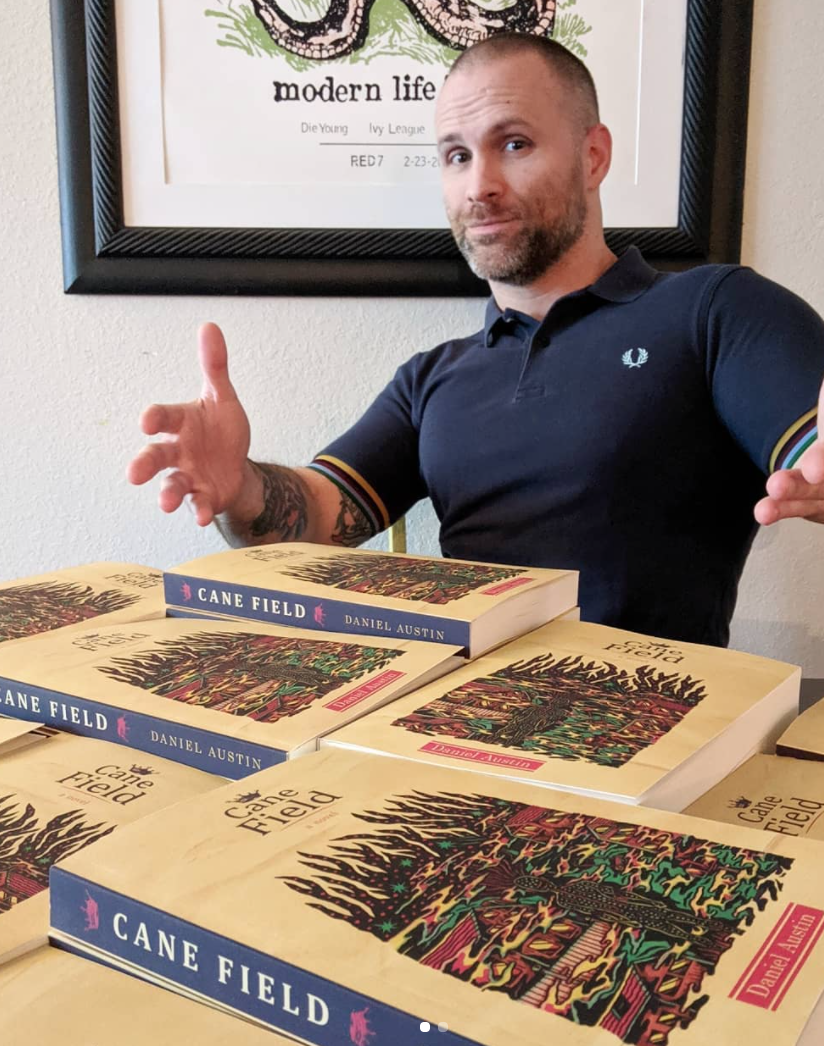
Is it weird publishing a physical book in a very digital age? I know you have digital versions of some of your books as well, do those go over well too or are your readers very much a physical based reading experience?
I have a rule about my poetry books, and that rule is that I will never publish them digitally. At least not for any reason that I can foresee currently. I believe you need to sit down personally with poetry. To hold it. To physically feel the words on the page. And if you don’t want to make that investment with it, I don’t think it’s going to be for you. It’s a form of writing that I think we need to get back into our bodies for in order to experience it properly.
However, with a book like The Way of the Vegan Meathead, I have no issues publishing digitally, as it’s not deeply personal or vulnerable. It’s more of a manifesto or instructional kind of book, so whatever makes it convenient for people to get the knowledge they are seeking, I am all for that. Then with the novel, Cane Field, it’s somewhere in the middle.
Clocking in at nearly 300 pages, it takes more investment than any of my other books to digest, and that takes time, so to make it more convenient for people to take the book with them on their phones, I think it’s just a practical move.
To be fair, I have sold way more physical copies of Cane Field and the Vegan Meathead book than I have digital copies, so we can’t underestimate the longstanding demand for physical books, and I am grateful for that. People do ask for Vegan Meathead audio books–a lot–and when the second edition comes out, I will happily provide that format too.
The release of The Dogman of Belvedere is also coinciding with the digital release of your Mainländer solo musical project. Mainländer kind of at times reminds me of your old project Band of Mercy with the pseudo Motörhead vibe, but also hints of Converge or just driving aggressive heavy music without the aim of having someone mosh.
For those unfamiliar, give them a run down of Mainländer and how that came about as well as what they can expect.
That’s a pretty good description of Mainländer musically! Motorhead meets Converge is not bad at all. Something like Disfear and Motörhead dabbling in the realm of gothic folk music, with occasional explorations into other, stranger territory. Converge’s influence can never be underestimated in both Die Young, and now in Mainländer.
In fact, Converge’s covers of The Cure (“Disintegration”) and Depeche Mode (“Clean”) were major inspirations for the way I tackled my cover of PJ Harvey’s “To Bring You My Love” on this new Mainländer release.
I am not about to pick up an acoustic guitar and start singing regularly, nor am I going to start playing synth and bellowing like Andrew Eldritch. I love that stuff, I just don’t have the drive to make something in that vein myself. Not my forte. I figured the best I could do with some songs of this nature was to create some sort of hybrid between what Lemmy and Tomas Lindberg might do…
Most of the songs are more D-beat inspired (see: Disfear or Tragedy), but the PJ Harvey cover delves into more experimental and atmospheric terrain with blackened melodic riffs and a lot of dynamic changes throughout.
These are existentially heavy songs—about suffering, fate, desire, failure…you know, fun stuff like that!
One thing that I have always loved is you have a very recognizable voice, and regardless of the instrumental side of music, when I hear your voice, regardless of the project, I know it’s you. Also you’ve been screaming and yelling whatever for over 15 years, how have you maintained such a strong voice, especially from touring so hard which we discussed earlier.
Thanks again! I always think my voice is either what makes or breaks people about my bands haha. People seem to love it or hate it. Glad you love it! For better or worse, I don’t know how to sound any different at this point in my life, although I am trying to hone my skills as a minimally decent clean-singer in both Tooth and Claw, and Mainländer, too.
To be fair, whenever I tour or play more than one show at a time these days, I usually blow my voice out within one to three days. Then it takes a few days to get it back, and once it comes back I can belt it out like a champ for weeks. But the vocal cords really are like a muscle in that way–if you don’t use them you tend to lose them. It takes conditioning to keep them strong.
The only tip I can give is to practice semi-often, even if it means driving around screaming in your own car. Yes, I do drive around screaming in my own car...sometimes. Can’t do it at my house (it terrifies my dogs).
Do you find it harder to push a new musical project in a streaming age where everything moves so fast and “success” or attention of a band/release feels very fleeting? How do you stay so motivated to keep releasing new music and projects for so many years?
It’s absolutely disheartening to consider how quickly people will disregard something you spent months crafting for release, if not longer, but that’s the age we live in, so expectations must be set accordingly. And by that, I mean that you should expect precisely zero people to give a fuck. If you get your praises sung for even 5 minutes, be fucking happy about it.
Tons of great records get buried under the tide of releases coming out every single day, so the only reason anyone should be making music or art or literature at all is because they have the undeniable impulse to express themselves exactly how they feel they must. Then, when your great masterwork comes out and no one gives a single fuck, you can still feel accomplished that you saw your own vision through. Meaning has to come from within or else this world is just going to ruin you.
I guess I stay motivated because I’m still living in my own head, trying to sort out my feelings about living, and if I don’t transcend those feelings into something cathartic or potentially useful, then I start to fall apart. I stay creative to save myself. It’s purely selfish.
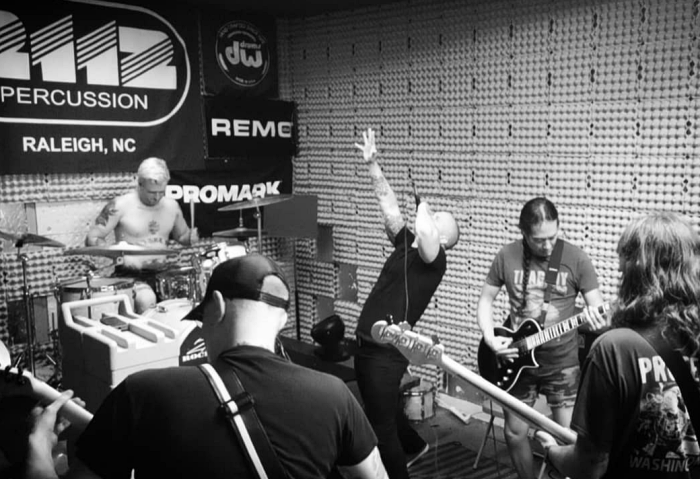
I could keep talking your ear off but I want to keep this short & sweet, where can readers find The Dogman of Belvedere as well as the new Mainländer material?
The best place to get The Dogman of Belvedere is directly from me on my website (www.daniel-austin.com), but it’s also available on Amazon for you free-shipping fiends (I ain’t Amazon-shaming you at all!). You can download the Mainländer recordings on October 1st, 2021 on my website as well, or on Bandcamp, if that suits your fancy.
Any parting words of wisdom, things you want to shout out, final goodbyes? The floor is yours!
Remember kids, it can always be worse! Way worse. And when death comes, it just solves all our problems. Try to enjoy your petty human problems while you can. Thanks for the interview!
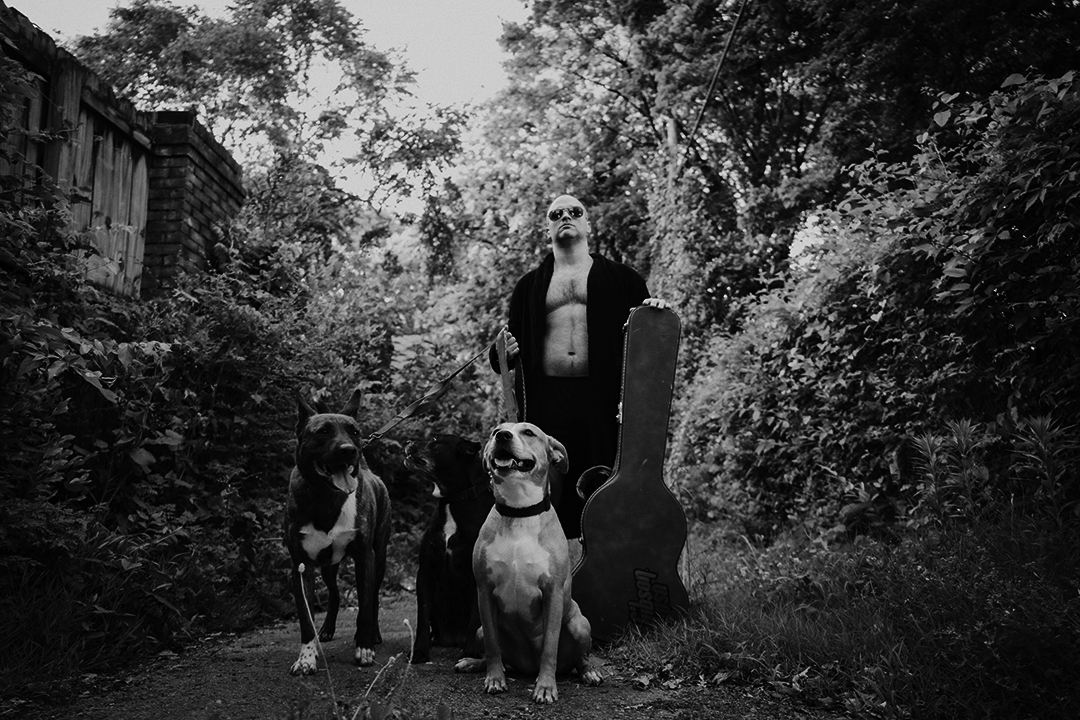
***
You can follow Daniel and learn more about what he’s up to on Instagram, or through his website.
***
Help Support What No Echo Does via Patreon:
***
Tagged: band of mercy, die young, tooth and claw

